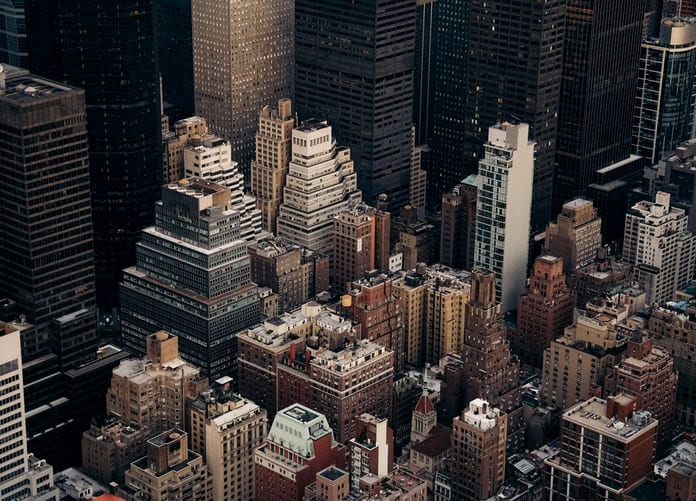
“Time is money” does not ring true for plenty of people. More apt nowadays would be the aphorism “Space is money,” at least in NYC. A small, one-bedroom apartment in SoHo can cost you anywhere between $1600 and $6000 a month, and even a 4’x4’ storage unit on West 55th Street will set you back $112 a month. And while many urbanites are quick to decry the space that cars and parking spaces take up, it’s much less common to hear anyone bemoan the thousands of apartments and homes left vacant in New York City while their owners stay in second homes elsewhere.
Affordable housing is a perpetual concern for the city, which struggles to maintain its public housing and has not been able to keep supply at the pace of demand. In 2017, a report by the NYU Furman Center found that between 2000 and 2016, housing stock increased by 8%, but the adult population for the city grew by 11% and the job market—a sign that even more people would move to the city for work—grew by over 16%. The city needs to keep finding new policies and programs to increase the supply, like incentivizing developers and transforming hotels into affordable housing, but there’s a large chunk of property sitting idle—the secondary apartments and houses of the elite.
So what can be done to even the playing field? One small but effective solution is for the City to implement a vacancy tax, modeled on Vancouver’s Empty Homes Tax, which the Canadian city implemented in 2016. The tax required any home deemed empty to pay a tax of 1.25% of the house’s value, a tidy sum that was further increased to 3% just this year.
This isn’t the first time a so-called “pied-à-terre tax” has been suggested in New York. In 2019, a proposed policy would have placed a .5-4% tax on secondary homes in New York City that were worth over $5 million. Though it would have affected a small group of the city’s wealthiest inhabitants, it had the potential to earn the city at least $650 million each year. The real estate industry helped bring the proposal to its knees.
Though the tax was squashed, there is no time like the city’s current crisis to bring in sweeping change. Why not take the housing crisis and the global health crisis and finally implement policies that make long-lasting change? The vacancy tax will not directly increase the supply of housing, but the earned tax money could be earmarked to support the creation of affordable housing.
From bodegas with whatever Haribo flavor you want, to the grandeur of the Brooklyn bridge, to the incredible diversity of New Yorkers themselves—this place is like no other. There are plenty of people who recognize the thrill of this city and will be willing to pay just a bit more in taxes to have a space here. Let’s capture this demand, and use this money to better our city.
Cover Image Source: Unsplash